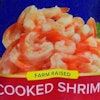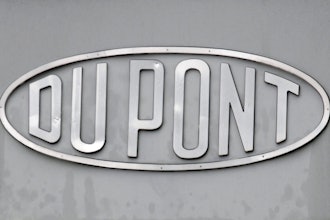NEW YORK (AP) -- Cargill Inc. says it will start labeling beef products that contain finely textured beef after the ingredient came under attack as "pink slime" last year.
The Minneapolis-based meat company says the new packages will appear before next year's grilling season and is in response to consumer demand. It says packages will note when a product "Contains Finely Textured Beef."
Finely textured beef is made by separating the bits of meat that are stuck on fatty trimmings. Those bits are treated to kill bacteria; the resulting product is mixed with ground beef. The filler had been used for decades in the U.S. but started to gain negative attention after a New York Times article in 2009, in which a federal microbiologist referred to it as "pink slime."
Cargill, which supplies restaurants and packaged food companies, said its branded beef products sold in retail outlets such as supermarkets accounts for less than 10 percent of its ground beef business.
The company also supplies meat to supermarkets, which then package the meat themselves. In those cases, it would be up to the retailer to label whether the products contain finely textured beef. Cargill said it would encourage retailers to do so.
Federal regulators have said the ingredient meets standards for food safety and doesn't have to be labeled as an ingredient. And estimates of its use have ranged as high as 70 percent of ground beef products before last year's controversy erupted.
Before the use of finely textured beef became a controversial issue, Cargill processed about 200 million pounds of the ingredient each year, said Michael Martin, a company spokesman. But volume sank by about 80 percent after the public outcry, which prompted retailers to ask Cargill to provide meat without it.
Since then, however, Martin said volume is back up to about 50 percent.
Cargill Inc. says it will start labeling beef products that contain finely textured beef after the ingredient came under attack as "pink slime" last year.
The Minneapolis-based meat company says the new packages will appear before next year's grilling season and is in response to consumer demand. It says packages will note when a product "Contains Finely Textured Beef."
Finely textured beef is made by separating the bits of meat that are stuck on fatty trimmings. Those bits are treated to kill bacteria; the resulting product is mixed with ground beef. The filler had been used for decades in the U.S. but started to gain negative attention after a New York Times article in 2009, in which a federal microbiologist referred to it as "pink slime."
Cargill, which supplies restaurants and packaged food companies, said its branded beef products sold in retail outlets such as supermarkets accounts for less than 10 percent of its ground beef business.
The company also supplies meat to supermarkets, which then package the meat themselves. In those cases, it would be up to the retailer to label whether the products contain finely textured beef.
Federal regulators have said the ingredient meets standards for food safety and doesn't have to be labeled as an ingredient. And estimates of its use have ranged as high as 70 percent of ground beef products before last year's controversy erupted.
Before the use of finely textured beef became a controversial issue, Cargill processed about 200 million pounds of the ingredient each year, said Michael Martin, a company spokesman. But volume sank by about 80 percent after the public outcry, which prompted retailers to ask Cargill to provide meat without it.
Since then, however, Martin said volume is back up to about 50 percent.
"Our research shows that consumers believe ground beef products containing Finely Textured Beef should be clearly labeled," said John Keating, Cargill Beef president said in a statement regarding Tuesday's announcement.
Beef Products Inc., the other major producer of the ingredient, also said its sales were hit by about 80 percent after the controversy. Beef Products, based in South Dakota, produced a higher volume of the ingredient, which it calls lean finely textured beef.
Last year, the company announced it was closing three plants as a result of the sharp reduction in demand.






















